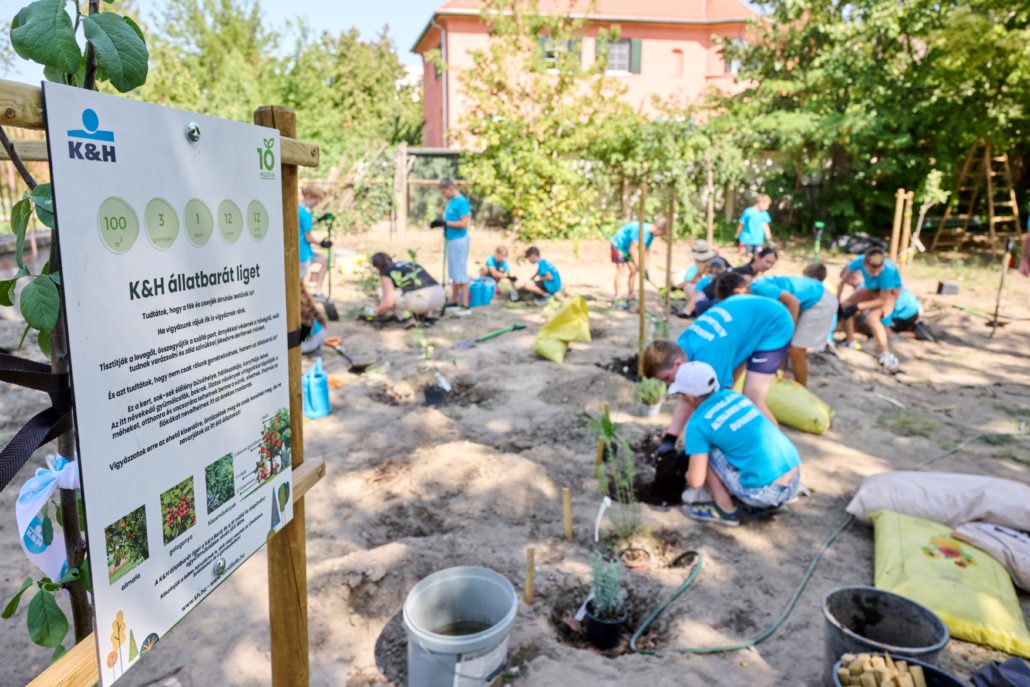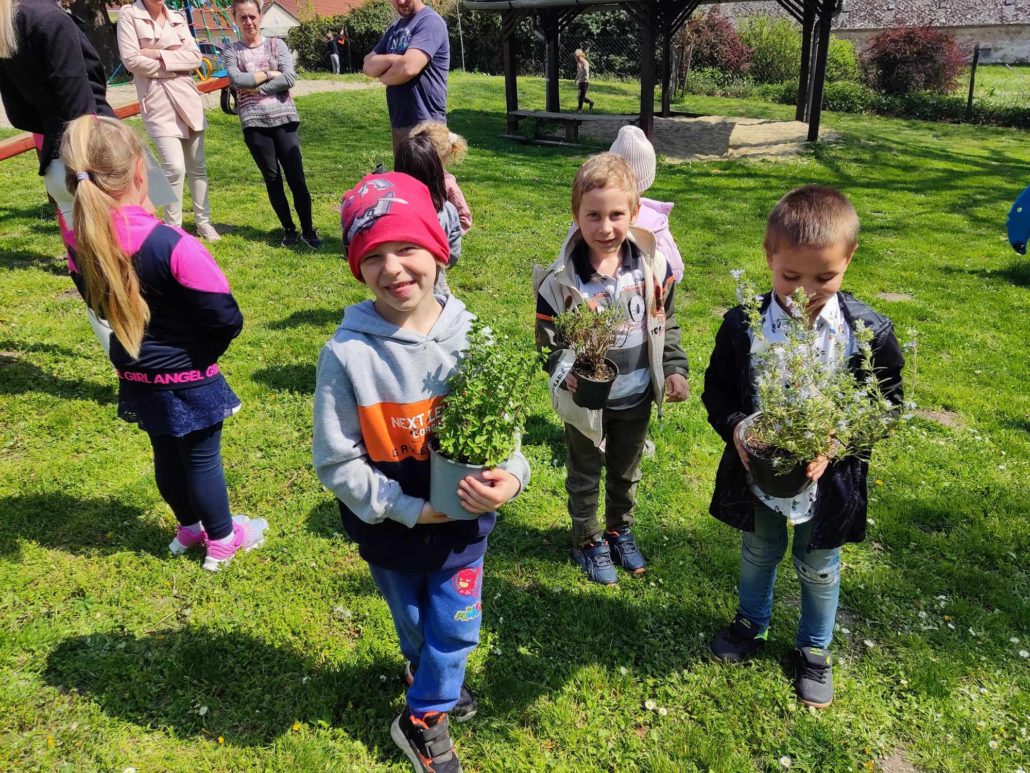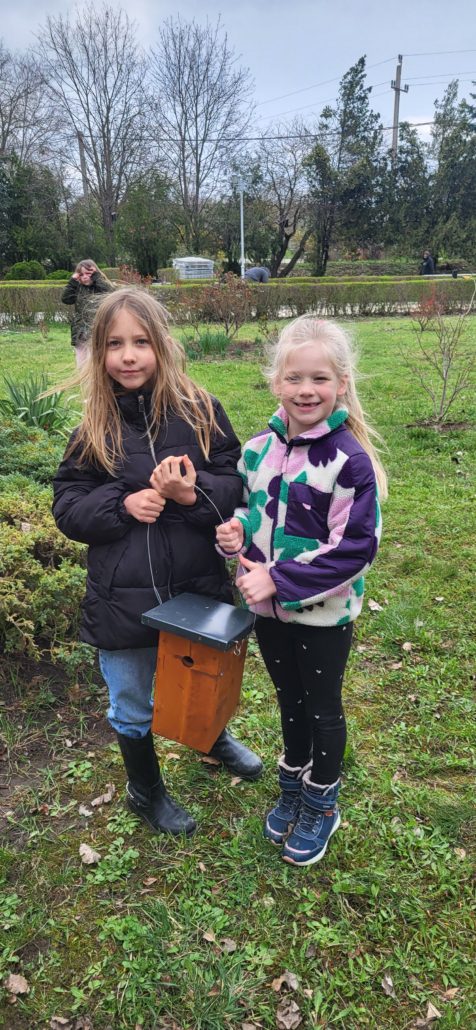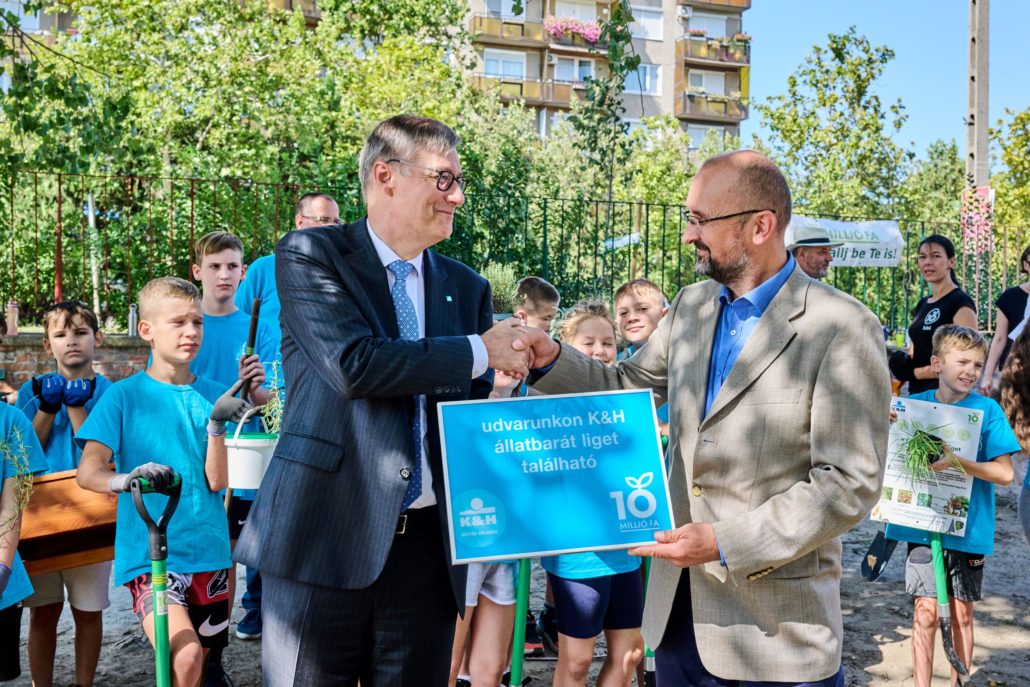Even it is September, the heatwave has not eased so far, and it is getting harder and harder to bear the heat that has lasted for months. The shade and the cooling effect of trees and plants can significantly improve our well-being, but the animals also need green surfaces. In this spirit, the K&H animal friendly groves program turned the yards of 30 educational institutions green. The 100 square meter parks will even attract birds, butterflies and hedgehogs into the immediate environment of children. As a result, the young generation can experience the beneficial effects of plants, and thanks to the educational materials, they can learn more about the harmonious coexistence of humans and the flora and fauna.

We experienced an extremely hot summer and even in September the heat has barely eased. This is becoming more and more difficult to bear – especially in the cities. The situation is worst in inner-city areas: this is due to the so-called urban heat island effect, which means that the temperature is much higher in densely built-in downtown areas than in areas with plants. So even in the suburban areas the temperature is much more tolerable, not to mention the parts densely covered with trees. This can be traced back to the fact that green surfaces reflect solar radiation better than built-in surfaces, and also help cool the environment through evaporation. Measurements prove that while the pavement and the road can be 50-60 degrees Celsius on a sunny summer day without shade, the soil in green areas and shaded parts is only 15 degrees.
“Green surfaces play a significant role in combating climate change, but our own well-being is greatly improved even in a sort time if we surround ourselves with plants. We need trees not only in forests, but also in our immediate environment – and it is up to us how many trees and bushes we plant where we live” – said Guy Libot, CEO of K&H Group. “With our K&H animal friendly groves program, we create a small park in the yard of schools and kindergartens, where they can not only cool off in the shade, but also observe birds, insects, and hedgehogs. In addition, we also help them with educational materials so that young people can become even more familiar with the importance of the organic unity of humans, plants and animals”- he added.

The K&H animal friendly groves program was implemented in 30 kindergartens and schools across the country in the past six months. In this way, the financial institution has already turned 130 educational yards green with the professional cooperation of the 10 million Trees Foundation, since in the 2022/23 academic year 555 trees and 1110 shrubs were planted in 100 educational institutions in the K&H cooling groves program.

In the yards of the institutions participating in the K&H animal friendly groves program, a green area of 100 square meters was created each, consisting of 28 plants. The biodiverse parks contains birdhouses, feeders, birdbaths and hedgehog hiding places and offer attractive habitat for the animals.

The program also includes educational materials, as well as a treasure hunt game that is held by the 10 Million Trees Foundation after planting the trees and bushes with the children.






